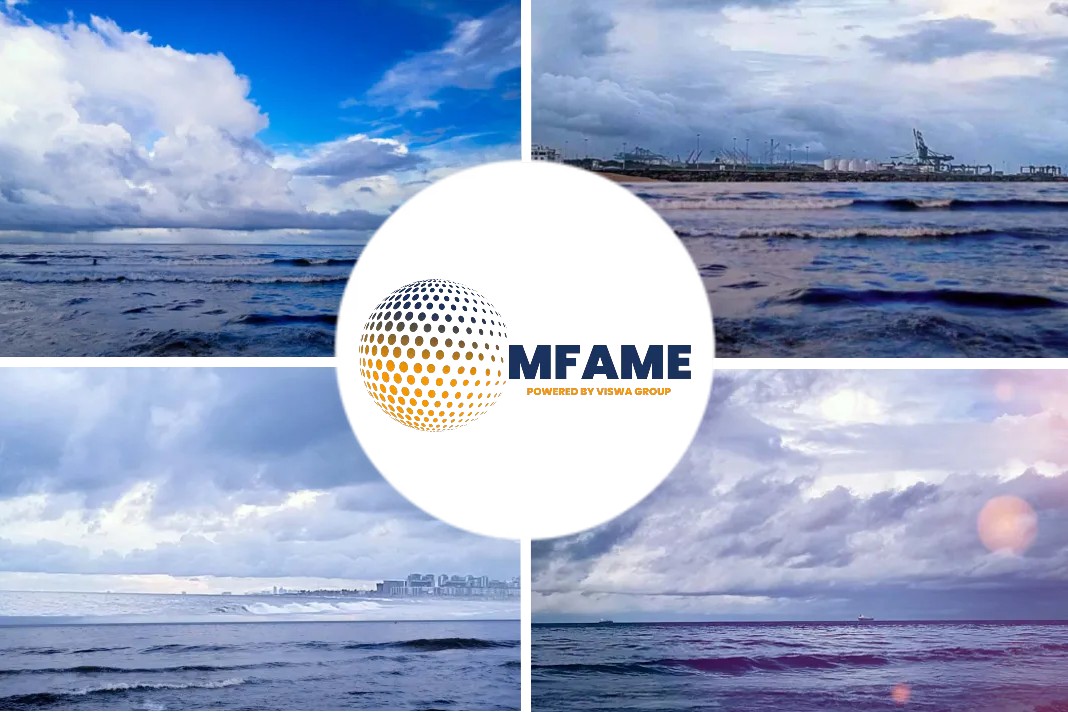- Golden Ocean has signed a non-binding term sheet to buy 10% of a bunkering joint venture (JV) together with global trading giant Trafigura, and tanker company Frontline.
- The JV will ensure a prompt access to both high-sulfur fuel and compliant fuel, which will either give a further competitive advantage or at least protection from a significant risk.
One way to overcome the limitations on marine fuel supply due to upcoming regulations is to buy your own marine fuel supplier, or at least part of one. This ensures fuel availability and helps in meeting up fuel costs, reports Freight Waves.
This is the strategy chosen by dry bulk owner Golden Ocean (NASDAQ: GOGL), which reported larger-than-expected quarterly losses on August 15.
Non binding term by GOGL
Golden Ocean has signed a non-binding term sheet to buy 10% of a bunkering (marine fuel supply) joint venture (JV) together with global trading giant Trafigura, which will own 75%, and tanker company Frontline (NYSE: FRO), which will own 15%.
Norwegian shipping magnate John Fredriksen is the largest shareholder in both Golden Ocean and Frontline, through his company Hemen Holding Ltd.
Depression in Capsize rates
Golden Ocean is the second-largest listed owner of larger bulkers, with 38 Capesizes, 27 Panamaxes and two Ultramaxes.
Capesizes have a carrying capacity of 100,000 deadweight tons (DWT) or more, Panamaxes 65,000-90,000 DWT and Ultramaxes 60,000-65,000 DWT.
Capesize rates were depressed in the first quarter of 2019 by the closure of a major mine in Brazil and a subsequent cut in iron-ore exports from that country to China.
Brazilian exports normalized later in the second quarter, pushing Capesize rates much higher, but not soon enough to rescue Golden Ocean from weak results in that period.
Net loss in the second quarter
The bulker owner reported a net loss of $33.1 million for the second quarter of 2019, compared to a net loss of $7.5 million in the second quarter of 2018. The latest period included $13.3 million in non-cash mark-to-market losses on derivatives.
Excluding that, its adjusted loss was $19.8 million or $0.16 per share, worse than the $0.10 per share loss expected by analysts.
“It was our weakest quarter in years,” acknowledged Golden Ocean chief executive officer Birgitte Vartdal, although she emphasized that the “dramatic turnaround” in rates starting in June should herald improved results in the third quarter.
The company’s fleet earned an average rate of $11,629 per day in the second quarter, down 24 percent year-on-year and down 11 percent from the first quarter of this year.
IMO 2020 strategies
The IMO 2020 regulation mandates that ships not equipped with exhaust gas scrubbers must burn fuel with a sulfur content of 0.5 percent or less as of January 1, 2020. Golden Ocean is pursuing two strategies to deal with this – one standard and one unusual.
In the standard category, it is installing scrubbers on 23 of its Capesizes. Three are already installed, 12 more will be installed by year-end, and the remaining eight will be finished by the end of the first quarter of 2020.
Joint venture with Trafigura and Frontline
The company’s more unusual strategy involves the joint venture with Trafigura and Frontline, which is expected to launch by the end of September. Trafigura – which traded 80.5 million tons of fuel oil and gas oil in 2018 and delivered 3.5 million tons of bunker fuel – is contributing its existing physical bunkering facilities to the venture.
The venture will be the exclusive marine fuel supplier of Trafigura and certain entities linked to Hemen Holdings, and will also serve third-party customers.
Global leader in marine fuels
During the conference call with analysts on August 15, Vartdal said that the new joint venture “aims to be one of the world’s leading suppliers of marine fuels” and that Trafigura’s current facilities already boast “a broad geographic footprint.”
“We believe the JV will ensure we have prompt access to both high-sulfur fuel and compliant fuel, which will either give us a further competitive advantage or at least protect us from a significant risk,” she affirmed.
According to Deutsche Bank transportation analyst Amit Mehrotra, “The JV makes entirely good sense. We’d expect more [announcements] like this by large shipping companies in the coming months. It also underscores disruptions that could occur from IMO 2020, which would squeeze less well-capitalized owners – which [account for] the majority of the [vessel] supply.”
Continuous supply of HFO possible?
As previously reported by FreightWaves, through an interview with Jason Silber, head of marine credit reporting agency SeaCred, credit risk arising from weaker ship owners is expected to present a major hurdle to smooth IMO 2020 implementation.
Most of the ships on the water will switch to more expensive ultra-low-sulfur fuel starting in 2020. This raises the question of whether fuel suppliers at the world’s ports will continue to store and supply non-compliant high-sulfur heavy fuel oil (HFO).
For companies like Golden Ocean and others that are making significant investments in scrubbers, this poses a serious future risk. The only way scrubber investments will pay off is if cheaper HFO is actually available.
“Key for large ship owners with majority scrubber-outfitted fleets will be the availability of high-sulfur fuel oil,” said Mehrotra. “Based on our conversations with industry contacts, it does not appear this is a major issue for ship owners currently, though we suspect high-sulfur fuel oil availability will be the key driver of potential future deals and JVs related to bunker supplies.”
Did you subscribe to our daily newsletter?
It’s Free! Click here to Subscribe!
Source: Freight Waves
















